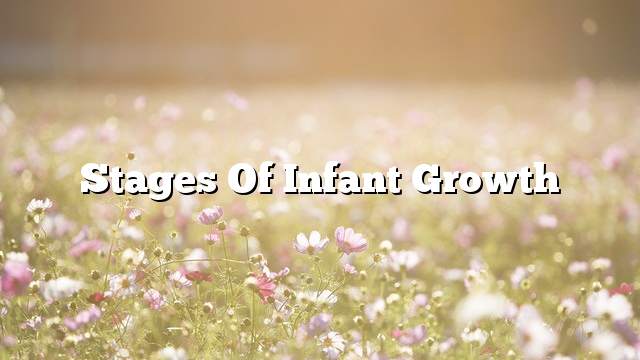Every mother has to possess abundant information about children, their stages of life, and their natural growth. Some mothers, especially newborns (ie, mothers who have the first child with their lives), are faced with multiple stages of each stage. They have a hard time beginning to deal with their baby so every girl who is married and has not yet had to devote part of her time to learning about the world of children and how to grow so as not to endanger their children in the future. Baby growth is so important in order to know the correct ways to communicate I hope with your baby.
The child has a different life from the time he spent in the mother’s womb, since the baby is born (ie, on the first day until the end of the month). Most of the time is spent sleeping and eating. In the first month, the child needs full care and attention to the infant’s behavior. And his movements so that the mother can know his needs, it is not common for the child to express his feelings, but smiles on his own.
The child in his early stages grows rapidly. In the second month of the child’s life, he begins to acquire new skills where he can lie on his stomach, raise his head, move him right and left, and the child can open his hands and catch them on light objects. The child because every day acquires a new skill, expressing his needs, at this stage the child begins to laugh and play and increase his relationship with his mother.
In the third month, the child becomes stronger and stronger. At this stage, he can express his joy with the smile, and the pain of crying. He feels the joy of the people who surround him, and the joy of his actions. The stage begins with the child’s crystallization and acquisition (ie acquiring new movements, in line with his age).
The fourth month: The child has a special month in his life. He can eat in his own way, increase his hours of sleep and increase his movement and hours of waking. His life begins by regularizing the hours of eating, sleeping, waking up, playing and having the ability to meet things and put them in the mouth. To increase her attention to the movements of her child, so as not to pick up from the ground what causes him health problems, as he tries to identify things through experience and approach them.
In the fifth month: the speed of weight gain decreases, as the child tries to sit, and can fluctuate on the back and belly, and can hold things, such as: Karkishh for several minutes, and can lift things off the ground.
The child in the sixth month: has high qualifications, enabling him to crawl or love, and can sit alone without help, as the child becomes curious to know everything that revolves around him, and the movement is very much.
The seventh month: The months when the child becomes very active and curious. He works to lose everything that is under his gaze. After he finishes, he is thrown to the ground, so the mother must take care, care more and provide her child with safety.
In the ninth month, the child pays attention to music and songs from television or radio, and also imitates the applause of adults.
In the tenth month to the twelfth month, the child can walk with his feet, and he can understand words such as the word “L”. He can hold the cup with his hands and other acts that are more stable and strong.
